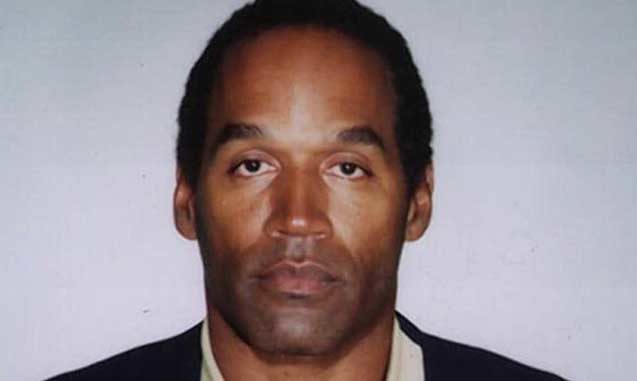
Stacy M. Brown
O.J. Simpson will be a free man on October 1.
On Thursday, July 20th, a Nevada parole board unanimously voted to grant the fallen gridiron star parole on his 2008 conviction on armed robbery and kidnapping charges. “Thank you,” Simpson, 70, said, dropping his head in relief.
Although, many media outlets noted how much slimmer Simpson appeared compared to 2014 when the Daily Mail dubiously reported that he tipped the scales at 300 pounds, prison records indicated that, by 2016, he weighed 235 pounds.
Simpson wore prison issued blue pants and a blue top and told the four-member board that he had missed as many as 36 of his children’s birthdays while incarcerated.
He said that he started and led Baptist ceremonies in prison and has “basically spent a conflict-free life.”
When the board asked about his participation in the armed robbery that took place in a Las Vegas hotel room, Simpson said he was unaware that any of the men were carrying guns.
During the hearing that lasted more than an hour, Commissioner Tony Corda asked Simpson, “What were you thinking?”
Simpson said he was simply trying to retrieve items that belonged to him, including personal photos of his children, ex-wife and mother.
“I’ve done my time,” he said. “I’d just like to get back to my family and friends. I’m sorry it happened. I’ve said, ‘I’m sorry to Nevada.’ I thought I was glad to get my stuff back, but it wasn’t worth it.”
Board members held up thousands of letters they said were both in support and against Simpson’s parole. They said they would not consider any letters that asked them to take into account the brutal 1994 slayings of Simpson’s ex-wife, Nicole Brown, and her friend, Ronald Goldman.
Simpson was famously acquitted of the murders of Brown and Goldman, but a civil court jury found him responsible for their deaths and ordered the football legend to pay more than $33 million to the Brown and Goldman families.
According to an article published in The New York Times in February 1997, the criminal court jury and the civil court jury basically heard the same case, with a few key differences.
“The criminal case was tried by a predominantly Black jury, and conviction required a finding that Mr. Simpson committed the June 12, 1994, slayings beyond any reasonable doubt,” The New York Times article said. “The civil case was tried before a predominantly White jury, and a verdict required only 9 of 12 votes, with the basic legal standard being that in all probability Mr. Simpson committed the slayings.”
MarketWatch.com reported that Simpson collected between $400,000 and $600,000 from his National Football League pension while he was incarcerated.
“He made over $400,000 if he started taking his pension at age 55, and over $600,000 if he started taking it at 65,” the MarketWatch.com article said, which was based on ESPN’s analysis.
Simpson isn’t required to use his pension funds to pay the Browns or the Goldmans, because NLF pensions are protected by state law, according to MarketWatch.com.
Arnelle Simpson, Simpson’s oldest child, was one of two people to testify at the hearing for Simpson. No one spoke in opposition of his parole.
Arnelle Simpson fought back tears, as she described her father as being her rock.“We just want him to come home, so we can move forward for us, quietly,” she said. One of Simpson’s robbery victims, Bruce Fromong, also spoke, telling the board he felt Simpson’s 33-year prison term was too long and the nearly nine years he’d already served exceeded justice for the crime committed. He said he and Simpson had been friends for more than 20 years and, at one point, turned to Simpson to reiterate his support of the one-time Heisman Trophy winner.
“O.J., if you called to tell me that you were getting out tomorrow, Juice, I’d be here to pick you up,” Fromong said. “I mean that, man.”
The board took about 30-minutes before rendering its decision that was televised live on several news outlets and on ESPN.
Simpson’s attorney said, with the permission of probation, he’ll return to Florida and lead a quiet life.
The MarketWatch.com article said that, “If Simpson lives in Florida when he’s released—he lived there before his arrest—he also wouldn’t be forced to sell his house to pay off the civil suit, because of the state’s homestead exemption.”
Recommended For You.



Be the first to comment